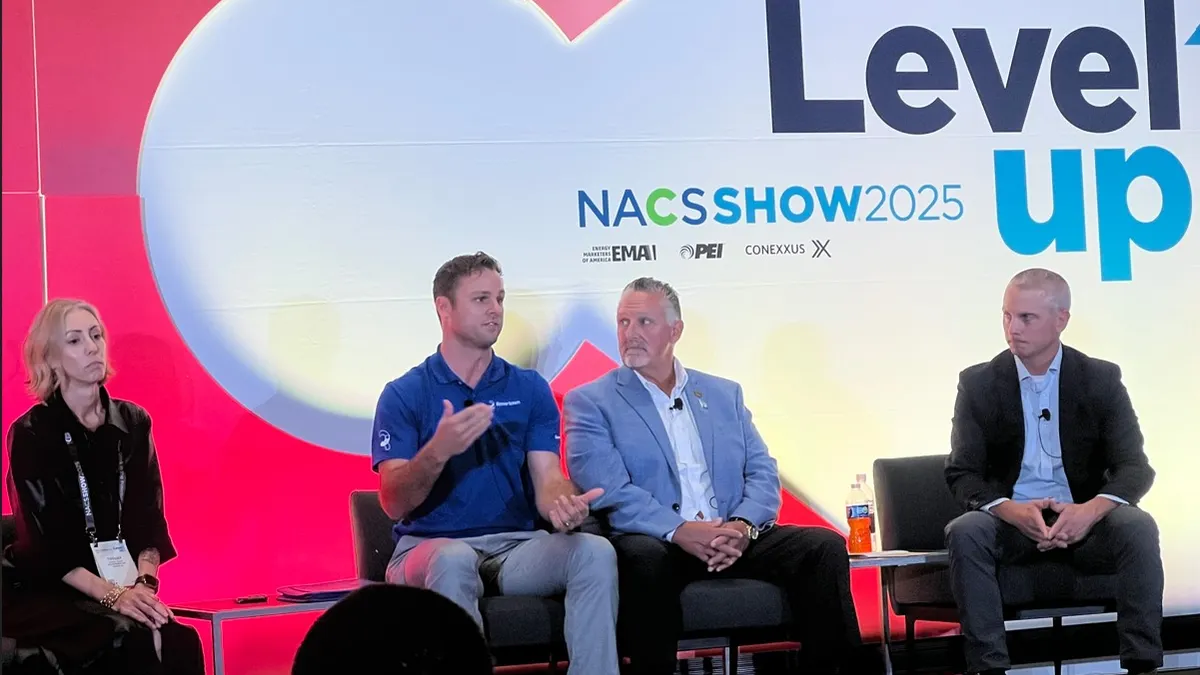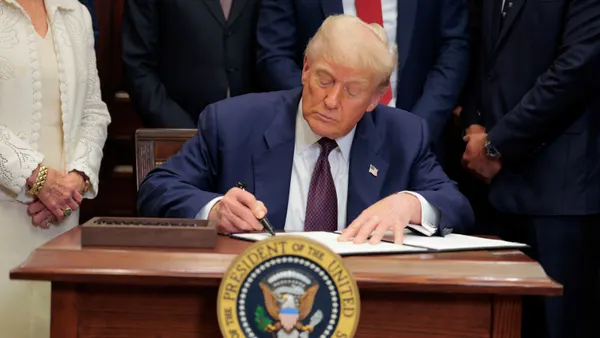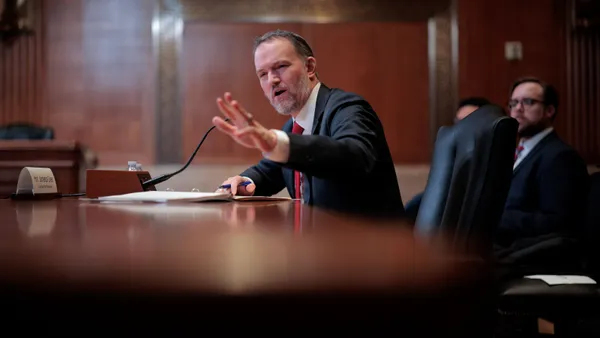It’s no secret that convenience retailers and suppliers can struggle to negotiate contracts, as both parties often have different pricing and inventory needs. Such hiccups are especially common among small or mid-size retailers that lack the scale, resources and negotiating power to deal with big-time suppliers, leading to plenty of headaches — and lost revenue — for both parties.
So it was no surprise that “The Art of Negotiation” was one of the most crowded sessions on day one of the 2025 NACS Show in Chicago. While the group of retailer and supplier panelists shared several negotiation tactics that can help bridge the gap between retailers and suppliers during negotiations, they agreed that before any discussions begin, both sides must come together as a partnership aiming to strengthen the industry.
“Everything has to be partner-first,” said Jeffry Harrison, co-founder and president of c-store mobile app developer Rovertown. “At the end of the day, if we're not in it for the industry and to help push us ahead of the QSRs, the dollar stores, the Amazons, the e-commerce of the world, we're going to miss the boat.”
Preparation, questions and awareness
Before the negotiations begin, retailers and suppliers must prepare, panelists said. That means understanding the other party’s best interests and defining both sides’ objectives.
“What’s happening with your business, the industry, the specific category you’re looking at?” said Brian Ferguson, chief marketing officer for EG America, during the panel. “What are your objective functions of the negotiation? What do you hope to accomplish?”
Jay Nelson, founder and CEO of tire gauge manufacturer Exel Tire Gauge, echoed that sentiment.
“You walk into a room, you want to understand what the pain points are,” said Nelson, whose company works with c-store retailers such as EG America. “Everybody's different, so if you're understanding what the other party's problems are, that's how you're going to solve the problem.”
From a retailer’s perspective, preparation means more than studying up on the vendor’s needs, said Harrison.
“It’s not just preparing to talk to that supplier — it’s also internal,” Harrison said.
Harrison admitted that, from the supplier’s side of the table, an early goal is usually “to get to the next meeting” and not come to a quick decision. However, if a retailer has a challenge they’re looking to address immediately with a supplier’s help, they must express that up front.
“If you have something that you're trying to solve immediately — an urgent issue, a supply chain issue or something like that — you need to tell that supplier right away,” Harrison said.
“There’s no real round numbers in our business, whether it’s your store count, candy sales or beverage margins. To ask for a round number sounds arbitrary and doesn’t seem like you’re prepared.”

Brian Ferguson
Chief marketing officer, EG America
Once negotiations begin, both parties should prioritize asking open-ended questions, Ferguson added.
“You ask a question knowing that you’re going to listen, whether it’s a financial question, a geography question, expansion question,” he said. “Asking a couple open-ended questions right in the middle [of the negotiation], I’ve always found, is really helpful.”
He cautioned retailers to avoid using round numbers when the finances come up.
“There’s no real round numbers in our business, whether it’s your store count, candy sales or beverage margins,” he said. “To ask for a round number sounds arbitrary and doesn’t seem like you’re prepared.”
Even if talks are in an advanced stage, retailers and suppliers must trust their gut, Harrison said. If either party realizes during talks that the deal isn’t a great fit, it's okay to end discussions rather than keep forging ahead.
“If they don't need your product, you don't need to keep pushing it,” Harrison said.
Negotiating contracts can be long, taxing work. But if one party isn’t respecting the other’s time and isn’t showing a genuine interest in doing business, nothing else matters.
“Don't schedule a two-hour meeting and then the day-of, shorten it to 30 minutes,” Ferguson said. “Being genuine… that’s what’s going to build your reputation.”
















